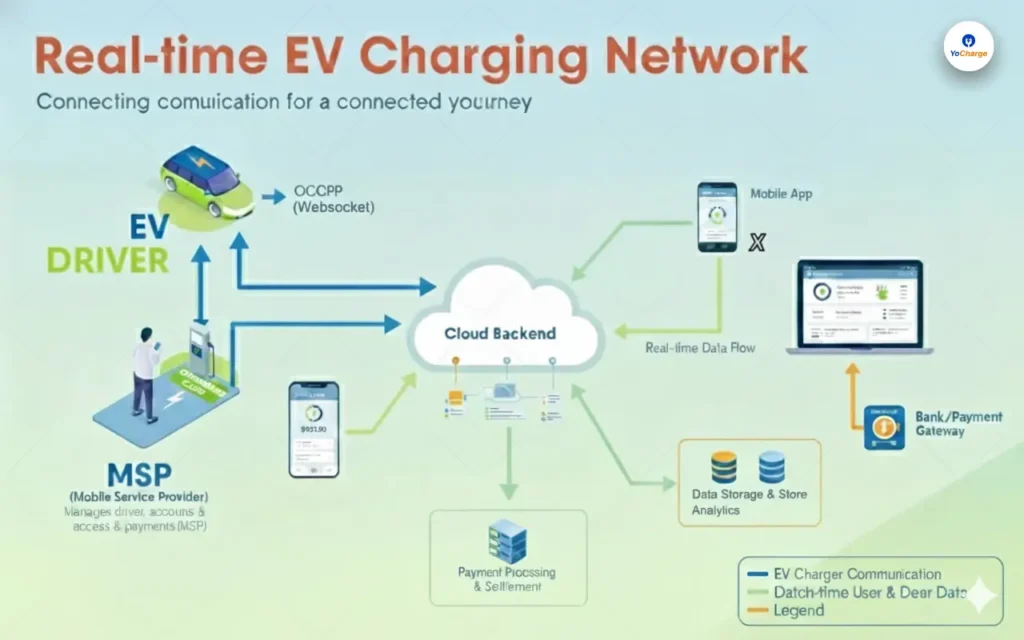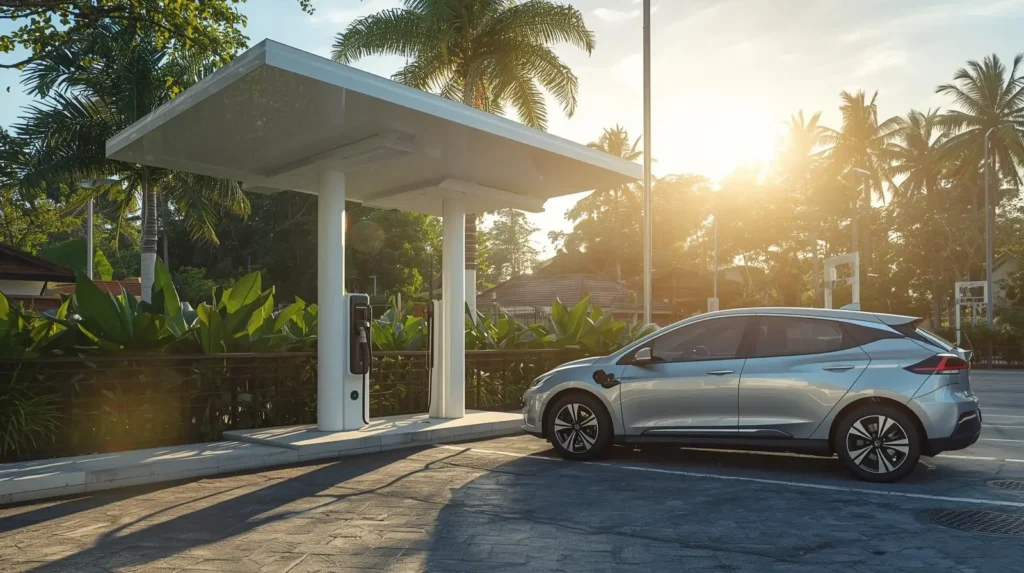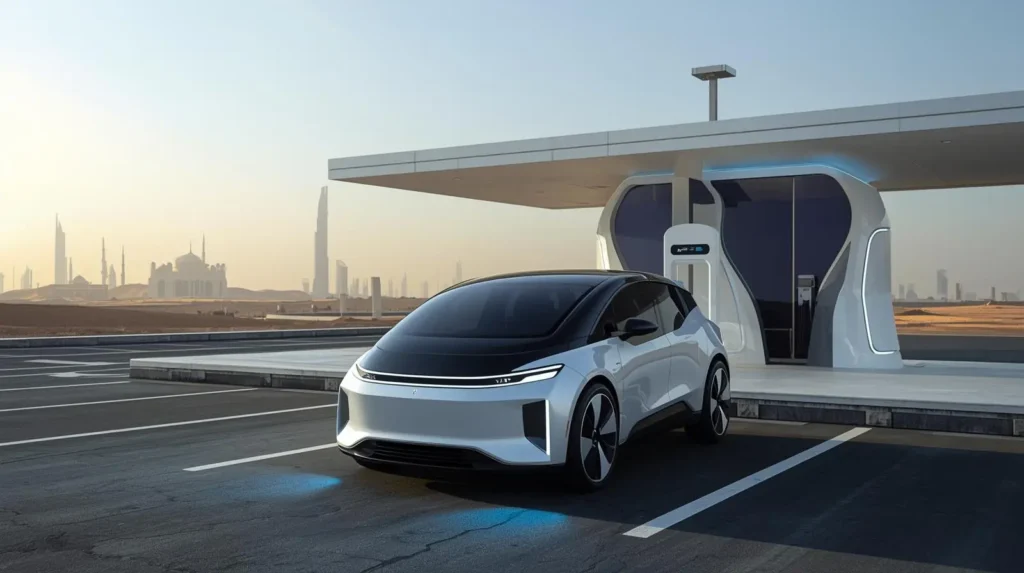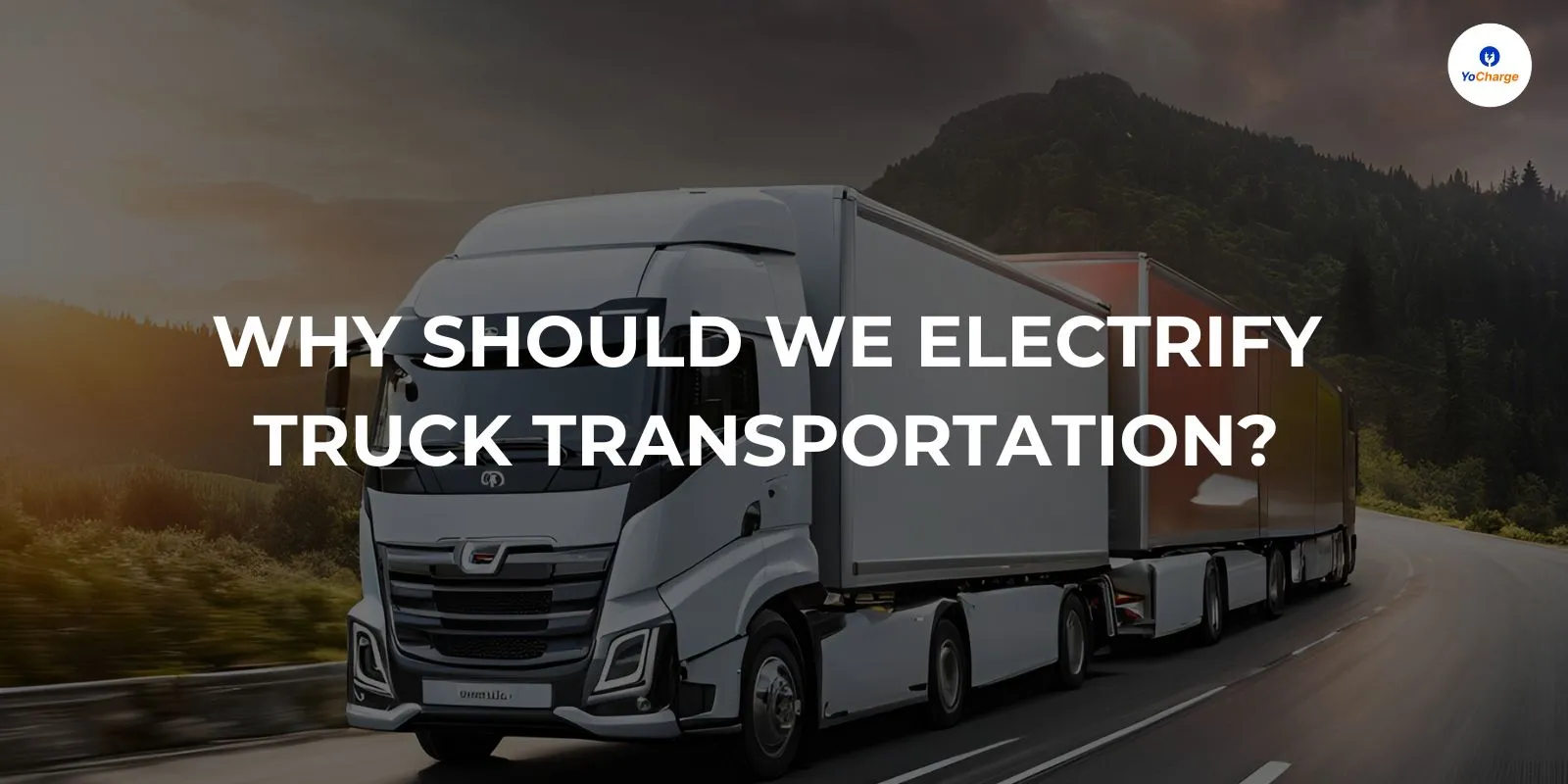
Why Should We Electrify Truck Transportation ? India’s trucking market is set to grow over fourfold by 2050, driving economic expansion and increasing transportation emissions. Currently, trucks move 70% of India’s domestic freight, and this demand is expected to rise sharply. The number of trucks could increase from 4 million in 2022 to 17 million by 2050. To address the environmental impact, electrifying truck transportation is a crucial step.
Electrification of trucks can be possible with zero-emission trucks (ZETs) offering a sustainable alternative. ZETs have no tailpipe emissions and lower operating costs, making them vital for improving air quality and public health in India.
Electric trucks offer a path to reduced emissions and lower operating costs. With technological advancements and supportive policies, the transition to electrification of trucks is no longer just an option—it is a necessity for a sustainable future.
Environmental Impact of Traditional Trucking
Diesel-powered trucks are significant contributors to air pollution and climate change. In 2022, these trucks emitted over 413 million metric tons of carbon dioxide in the U.S. alone. Diesel engines also release nitrogen oxides and particulate matter, which contribute to smog and respiratory diseases.
Globally, transportation is the fastest-growing source of CO2 emissions. Traditional trucks are at the heart of this issue. With the world facing a climate crisis, reducing these emissions has become a global priority. Countries are adopting stricter regulations to curb pollution from heavy-duty vehicles. The European Union, for example, has set a target to reduce CO2 emissions from trucks by 45% by 2030.
The shift towards electrification in trucking is not just about cutting CO2. It’s also about reducing harmful pollutants that impact public health. Diesel exhaust is linked to cancer, heart disease, and asthma. Communities near major highways and trucking routes are disproportionately affected. Electrifying truck fleets can drastically reduce these health risks.
Moreover, the environmental benefits extend beyond local pollution. By reducing reliance on fossil fuels, electric trucks help decrease oil dependency. This is crucial for both energy security and reducing the environmental damage from oil extraction and transportation.
Traditional trucking’s environmental impact is unsustainable. The combination of high carbon emissions and health-damaging pollutants makes a strong case for transitioning to electric trucks. This shift is not just an environmental necessity but also a step towards a healthier, more sustainable future.
Benefits of Electrifying Truck Transportation
Electrifying truck transportation offers numerous benefits, including improved energy efficiency, reduced greenhouse gas emissions, lower operating costs, enhanced vehicle performance, and the opportunity for smart fleet management.
In India, Trucks make up only 3% of the vehicle fleet but contribute about 50% of particulate pollution. This highlights the need to electrify truck transportation. This disproportionately affects communities near high-traffic areas.
Electrifying trucks can reduce these emissions and improve public health. The American Lung Association and Union of Concerned Scientists suggest that electrification could prevent 66,800 premature deaths and 1.75 million of asthma attacks between 2020 – 2050. Electrifying truck transportation is beneficial as it provides:
Improved Energy Efficiency
Electric trucks are significantly more energy-efficient than their diesel counterparts. They can achieve a source-to-wheel electrical efficiency of 70-80%, meaning only one-fourth of the energy produced is lost. This efficiency makes electric trucks less sensitive to energy price changes than diesel trucks.
Reduced Greenhouse Gas Emissions
Battery electric trucks emit 63% less greenhouse gas emissions than diesel trucks. While trucks and buses represent just 2% of vehicles on the road, they contribute to a quarter of transport-related emissions. Charging electric trucks with renewable energy further mitigates their environmental impact.
Lower Operating Costs
Electric trucks have lower energy costs compared to diesel trucks, even with rising electricity prices. They also require less maintenance, as they don’t need oil changes, coolant, or engine filters. Proper maintenance only requires checking the condition of the batteries and common vehicle elements like brakes and tires.
Tax Benefits
Many governments promote legislation that offers tax credits to organizations and individuals who opt for electric vehicles. These tax benefits encourage the adoption of electric trucks and support sustainability efforts.
Improved Air Quality
Electric trucks don’t emit polluting gases through exhaust pipes. By reducing the transport industry’s carbon footprint, electric trucks can improve air quality in cities.
Enhanced Vehicle Performance
Electric trucks utilize motors for power generation, resulting in quick acceleration and smoother operation. This not only boosts vehicle performance but also reduces wear and tear on various components, extending their lifespan.
Reduced Maintenance Requirements
With fewer moving parts compared to combustion engines, electric trucks have significantly reduced maintenance requirements. Fleet operators experience less downtime and increased operational efficiency due to the lower maintenance needs.
Opportunity for Smart Fleet Management
Advanced telematics systems enable real-time tracking of vehicle performance, battery health, and charging status in electric trucks. This data empowers fleet managers to optimize routes, reduce downtime, and maximize energy efficiency.
Electric trucks also provide an opportunity to integrate vehicles into a broader smart grid ecosystem, where they can smartly integrate with renewables and energy storage, participate in demand-response programs, and balance energy supply and demand while offering grid stability.
Industry Transformation
Major OEMs have been placing significant bets on electric vehicle (EV) technology, particularly battery electric trucks. This industry-wide support demonstrates a growing recognition of the potential of electric trucks in commercial applications.
Well-established players and newcomers alike are investing in research and development, production facilities, and charging infrastructure to meet the increasing demand for electric trucks.
Infrastructure Development
While concerns regarding charging infrastructure once plagued the electric vehicle market, the landscape has evolved dramatically. The knowledge gathered from establishing charging stations for electric cars has paved the way for a smoother transition to electrify the trucking industry.
Advancements in megawatt-capacity charging technology and regulatory and funding initiatives set up by European and national policymakers are laying the foundations for successful electric heavy-duty vehicle adoption.
Economic Benefits: Electrification of Trucks
Electrifying truck fleets offers significant economic advantages. While the initial investment may be higher, the long-term savings are substantial.
- Reduced Fuel Costs: Electric trucks run on electricity, which is cheaper than diesel. Over time, this reduces fuel expenses significantly. With diesel prices fluctuating, electricity offers more stable and predictable costs.
- Lower Maintenance Costs: Electric trucks have fewer moving parts. This reduces the need for maintenance and lowers repair costs. Fewer oil changes, no exhaust system repairs, and less brake wear contribute to these savings.
- Government Incentives: Many governments offer incentives for electrifying fleets. These include tax credits, rebates, and grants. These incentives reduce the upfront cost and accelerate the return on investment.
- Future-Proofing Investments: As regulations tighten on diesel emissions, electric trucks safeguard against future compliance costs. Investing in electric vehicles now can avoid expensive retrofits or penalties later.
The economic benefits of electrification are compelling. Lower operating costs, reduced maintenance, and government support make electric trucks a smart long-term investment.
Technological Advancements Enabling Electrification of Trucks
Recent advancements in battery technology and charging infrastructure have made electrifying trucks a reality.
- Improved Battery Technology: Batteries are becoming more energy-dense, allowing electric trucks to travel longer distances on a single charge. Innovations in lithium-ion and solid-state batteries have increased capacity and reduced charging times. This means electric trucks can now handle long-haul routes more effectively.
- Charging Infrastructure Expansion: Charging networks are rapidly expanding, making it easier for electric trucks to recharge. High-power chargers, capable of delivering 350 kW or more, reduce downtime, enabling quicker turnarounds for fleets. Public and private investments in charging stations are critical to supporting widespread truck electrification.
- Battery Management Systems: Advanced battery management systems optimize energy usage, extending the lifespan of batteries. These systems ensure that batteries operate efficiently, even under heavy loads, further enhancing the feasibility of electric trucks.
- Vehicle-to-Grid (V2G) Technology: V2G allows electric trucks to feed energy back into the grid during peak demand. This not only supports grid stability but also provides additional revenue streams for fleet operators.
These advancements are crucial for overcoming the traditional barriers to truck electrification. Longer ranges, faster charging, and smarter battery management make electric trucks increasingly viable for various applications. As technology continues to evolve, the transition to electric trucking will become even more attractive and feasible.
The Future of Electrification of Trucks
Electrification of trucks is the future of heavy-duty vehicles. As technology advances, electric trucks will become the norm in the industry. Predictions indicate that by 2030, a significant portion of trucks will be electrified. Battery technology will continue to improve, enabling longer ranges and faster charging. This will possible electrification of trucks for long-haul routes.
- Policy Support: Governments are already enacting policies to accelerate electrification. Stricter emissions standards and incentives for electric vehicle adoption will drive the transition. These policies will encourage fleet operators to invest in electric trucks, reducing their reliance on fossil fuels.
- Industry Collaboration: Collaboration between manufacturers, energy providers, and policymakers will be essential. Partnerships will focus on expanding charging infrastructure and developing new technologies. Industry leaders are already working together to create solutions that meet the needs of electric fleets.
- Widespread Adoption: As costs decrease and infrastructure improves, more companies will adopt electric trucks. This shift will reduce transportation-related emissions, contributing to global efforts to combat climate change. The future of truck transportation is not just about innovation; it’s about sustainability.
The electrification of trucks is inevitable. With strong policy support and industry collaboration, the future will see electric trucks dominating the roads. This transformation will benefit the environment, economy, and public health, making it a crucial step toward a sustainable future.
Top 13 Electric Trucks in India in 2024
Read Also
Conclusion
Electrifying truck transportation is not just a forward-thinking idea; it is a necessary evolution. With significant economic, environmental, and health benefits, the transition to electric trucks offers a sustainable future. Technological advancements and strong policy support are driving this change, making it more feasible and attractive.
The future of truck transportation will see electric trucks dominating the roads, reducing emissions, and improving public health. Embracing this shift is crucial for a cleaner, more efficient, and sustainable transportation industry.
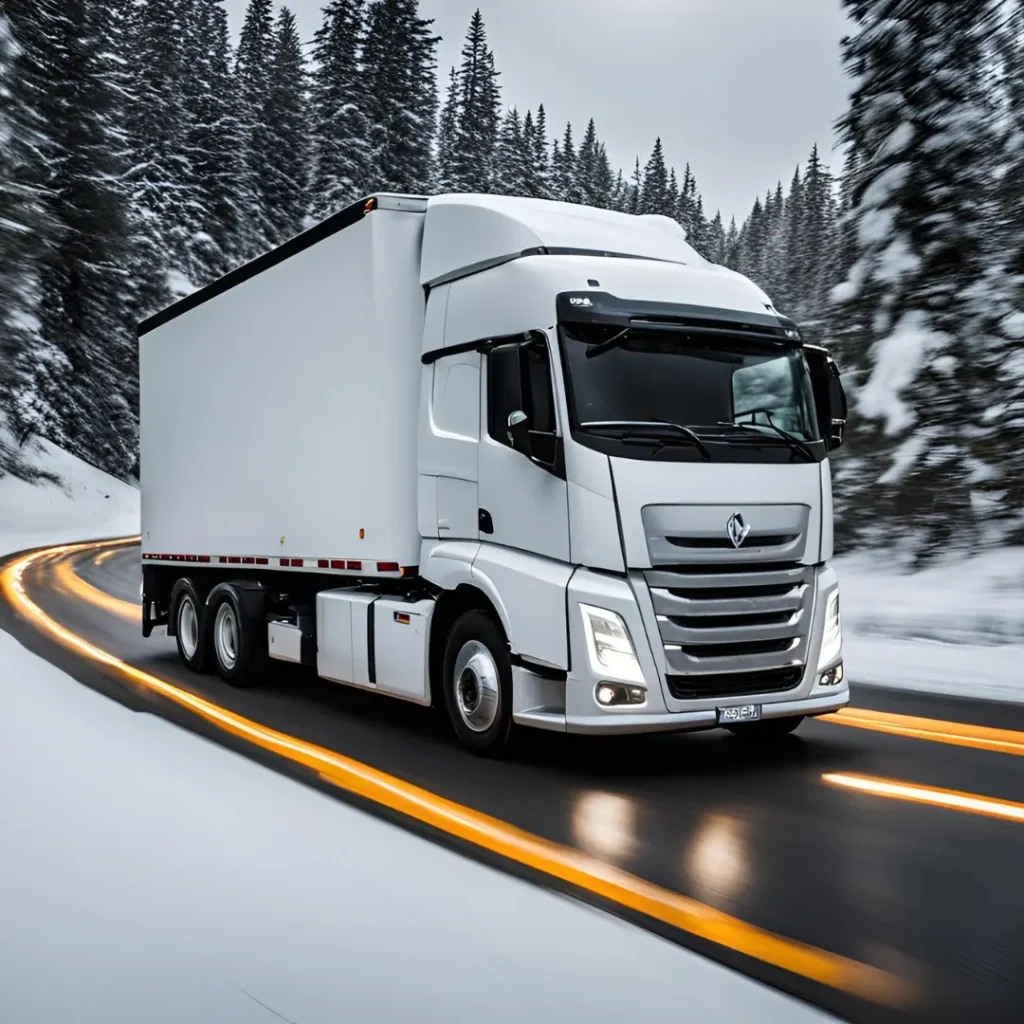
Looking to upgrade to Electric Truck Fleet ?
At YoCharge, we are electrifying truck fleets across multiple countries. Connect with us and lets together electrify mobility.
